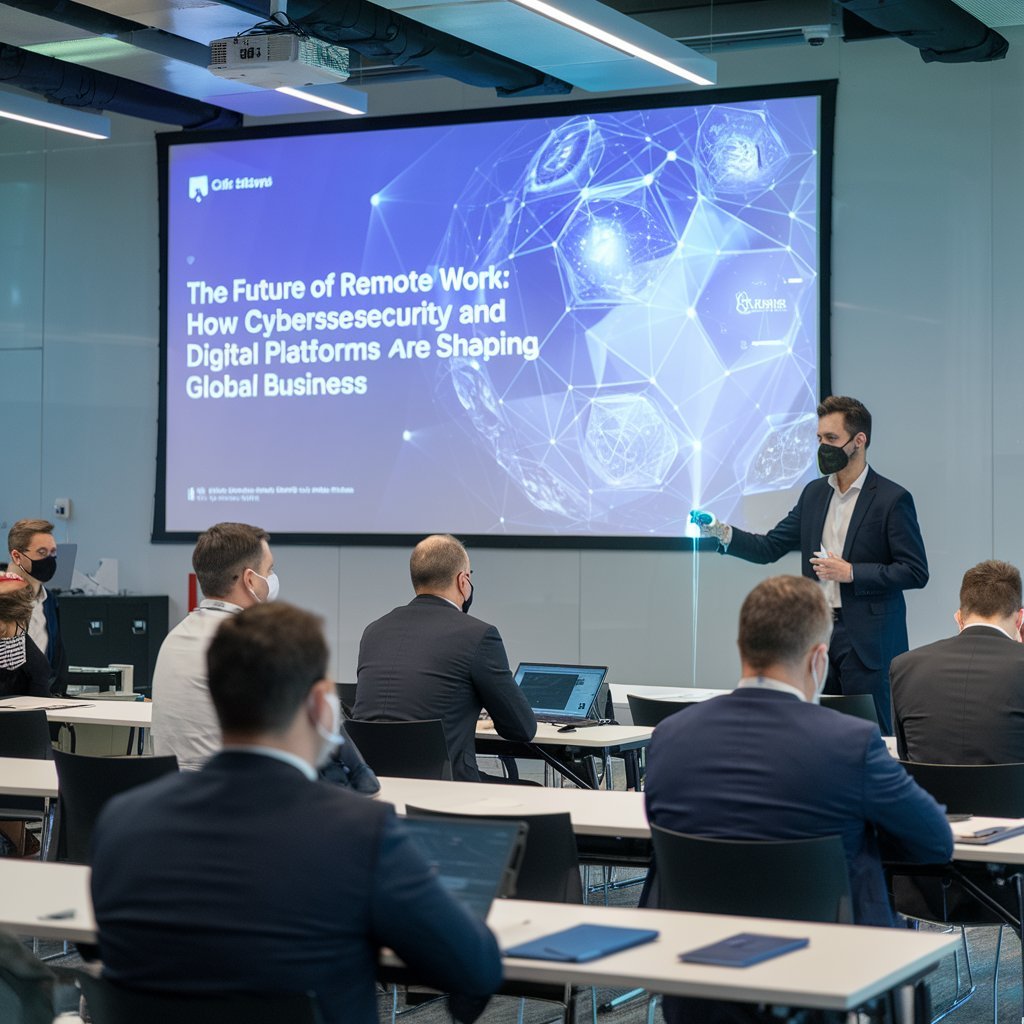In the modern business world, remote work is no longer a temporary adjustment but a permanent transformation. As companies worldwide continue to embrace this shift, they face new challenges, especially in terms of cybersecurity and workforce management. Leading companies like CrowdStrike, Fiverr, S&P Global, LogMeIn, and TeamViewer are at the forefront of this change, providing innovative solutions that are helping to shape the future of work. Here’s a closer look at how these platforms are influencing the global remote work landscape.
1. Cybersecurity in the Age of Remote Work: CrowdStrike’s Pivotal Role
One of the biggest concerns for organizations moving towards remote work is ensuring cybersecurity. With employees working from various locations, often on unsecured personal devices, the risk of cyberattacks has increased significantly. CrowdStrike, a leader in cloud-delivered cybersecurity, has emerged as a critical player in defending against these threats. The company provides real-time endpoint protection and threat intelligence, allowing businesses to detect and prevent cyber incidents efficiently.
CrowdStrike’s cloud-native solutions are scalable, making them ideal for organizations with distributed teams. As phishing attacks, ransomware, and other cyber threats become more sophisticated, platforms like CrowdStrike are indispensable to maintaining secure business operations.
2. Fiverr: The Backbone of the Freelance Economy
As remote work continues to expand, many businesses are turning to freelancers and contractors to meet their needs. Fiverr, a global marketplace for freelance services, has become an essential tool for businesses looking to hire talent in areas like graphic design, digital marketing, and software development.
Fiverr’s appeal lies in its ability to provide on-demand access to a global pool of freelancers, allowing companies to scale their workforce based on current demands. This not only reduces reliance on full-time employees but also gives individuals the flexibility to work from anywhere. Fiverr’s platform has become a cornerstone in the rise of the freelance economy, further breaking down traditional office structures.
3. S&P Global: Analyzing the Economic Impact of Remote Work
While operational changes often get the spotlight, the economic and financial impacts of remote work cannot be ignored. S&P Global, a leading provider of financial data and analytics, offers valuable insights into how remote work is shaping global markets. From corporate earnings to real estate trends, the company helps businesses understand how their industries are evolving in response to these new work dynamics.
For instance, S&P Global has noted significant shifts in commercial real estate, with many companies opting for smaller office spaces or adopting hybrid models. This data allows organizations to make informed decisions about their future strategies, ensuring they adapt to the changing economic landscape driven by remote work.

4. LogMeIn and TeamViewer: Essential Tools for Remote Collaboration
The success of remote work depends not only on security and staffing but also on seamless collaboration. Tools like LogMeIn and TeamViewer are essential for managing remote teams effectively.
LogMeIn offers a range of services, from remote access to file sharing and video conferencing, all of which help keep employees connected and productive no matter where they are. In 2025, its cloud-based solutions remain vital for maintaining business continuity in a remote-first world.
Similarly, TeamViewer provides remote desktop access and IT support, ensuring that businesses can troubleshoot technical issues without needing to be physically present. Both platforms have been instrumental in enabling smooth remote operations during the pandemic and beyond.
5. The Global Economic Shift: Broader Implications of Remote Work
The adoption of remote work goes beyond convenience; it represents a fundamental shift in how global business is conducted. By leveraging platforms like CrowdStrike, Fiverr, S&P Global, LogMeIn, and TeamViewer, companies can expand their talent pools, reduce overhead costs, and offer more flexibility to employees.
From an economic standpoint, remote work has far-reaching effects, influencing everything from real estate markets to national economic growth. Countries with robust digital infrastructures are particularly well-positioned to benefit from the remote work revolution, creating new opportunities for innovation and growth in sectors like cybersecurity and digital platforms.
Conclusion: The Future of Work is Here
As we look ahead, it’s clear that remote work is not just a passing trend but the future of global business. Companies like CrowdStrike, Fiverr, S&P Global, LogMeIn, and TeamViewer are leading this transformation, providing the tools and services necessary for businesses to thrive in a remote-first world.
By embracing these innovations, organizations can improve efficiency, enhance security, and adapt to the evolving demands of the modern workforce. The collaboration between cybersecurity, freelance platforms, and remote communication tools will be key to shaping the future success of businesses in the global economy.

